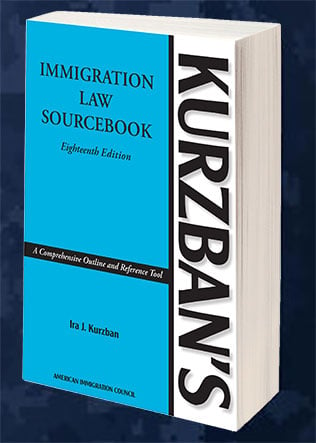Miami Judge Blocks Deportation Of Nicaraguans
On behalf of Jed Kurzban
War refugees lived under special status
June 24, 1997
Web posted at: 7:15 p.m. EDT (2315 GMT)
MIAMI (CNN) — The deportation of thousands of Nicaraguans who came to the United States in the 1980s to escape unrest in their homeland was blocked by a federal judge Tuesday, and an attorney for the immigrants hailed the move as a “major victory.”
The temporary injunction issued by U.S. District Judge James Lawrence King effectively prevents the U.S. government from sending home Nicaraguans in Florida, Georgia and Alabama. A trial to determine whether the ruling will be made permanent is set to begin in January 1998.
Until this year, tens of thousands of Nicaraguans enjoyed a special status, begun during the Reagan administration, that allowed them to remain in the United States — working and paying taxes even though their immigration status remained unresolved.
That program is now being phased out, and many of the Nicaraguans have been issued deportation notices. A new federal law also makes it far more difficult for them to win a suspension of deportation, a reprieve given to long-term illegal residents considered to be of good moral character.
Lawyers: immigrants’ rights violated
Many of the Nicaraguans own homes and businesses in Miami and have young children who were born in the United States, and are thus citizens.
Lawyers for the immigrants said the government’s interpretation of the new laws amounted to illegally stripping as many as 40,000 people of their immigration rights.
“This decision will not only have a direct and immediate impact on tens of thousands of people here, but will influence the fate of hundreds of thousands of Salvadorans, Guatemalans, Nicaraguans and others throughout the United States,” said Ira Kurzban, a lawyer for the immigrants, in a statement.
The Immigration and Naturalization Service had said it would not proceed with the deportations until the court’s ruling. Asked for reaction after the decision, a spokesman for the agency said it had the matter under review and had not yet decided how to respond.
Judge: plight ‘powerfully persuasive’
In his opinion, King said he had rarely seen such a “dramatic, heart-rending and powerfully persuasive case of irreparable harm to literally tens of thousands of people.”
The new immigration laws enacted in April left tens of thousands of Miami immigrants, primarily Nicaraguans, living in fear. Lawyers said many pulled their children out of school and were moving from house to house to avoid deportation.
“These are families that mind their own business, that have integrated themselves (into society) … They’re not a threat, and they don’t jeopardize the national security of the United States,” said Jose Lagos, public relations director for Fraternidad Nicaraguense, a Nicaraguan community organization that was one of the plaintiffs.
“It’s real, it’s happening, it’s painful, it’s uncomfortable, it’s not fair, and we’re talking about human lives here. … We’re not asking for anything public other than permanent residency,” Lagos said. “Why this legal battle against these taxpayers?”
Seeking to stop the deportations and gain permanent residency, the plaintiffs sued U.S. Attorney General Janet Reno, INS District Director Robert Wallis, the INS and the Department of Justice Board of Immigration Appeals.
Thousands of Nicaraguans have demonstrated in the streets of Miami, among them uniformed ex-guerrillas who fought in the U.S.-backed Contra army against Nicaragua’s leftist Sandinistas during the country’s eight-year civil war.
Reuters contributed to this report.

